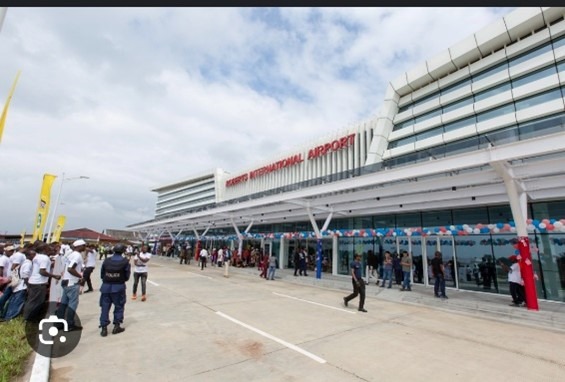On March 30, 2025, a power outage plunged Roberts International Airport (RIA), Liberia’s primary international gateway, into darkness, causing significant disruption and inconvenience, particularly for passengers arriving on an SN Brussels flight. Initial reports attributed the blackout to an electrical fault originating from the Liberia Electricity Corporation (LEC) power grid. Subsequent investigations, however, revealed a more complex chain of events leading to the outage. A joint team comprising officials from the Liberia Airport Authority (LAA) and the LEC concluded that the root cause was a bird strike on a transformer connected to the national grid. This strike damaged the transformer’s isolation, triggering a cascading failure that ultimately cut power to the airport terminal.
The LAA maintained that despite the power outage, the surrounding airport facilities remained illuminated, and at no point was the safety of passengers, including those on the affected SN Brussels flight, compromised. While the main terminal was dark, other areas of the airport, including the VIP terminal, had power. This allowed airport authorities to process passengers, albeit at a slower pace due to the limited capacity of the VIP terminal. Passengers were checked in, their luggage and documents processed, and they were able to retrieve their belongings the following day. The incident, while disruptive, was managed effectively to mitigate the impact on travelers.
The Liberian Senate, recognizing the gravity of the situation, launched an immediate investigation into the power outage. Key officials from both the LAA and the LEC testified under oath before the Senate’s investigative team, providing detailed accounts of the events leading up to, during, and after the blackout. The LAA’s Managing Director, Mr. Jero H. Mend-Cole, explained that the bird strike occurred several days prior to the main power outage. He attributed the incident to the ongoing bird migration season, noting that the airport and surrounding communities have garbage that attracts birds. The initial bird strike, while damaging, did not immediately cause a complete power outage. However, it set the stage for the subsequent failure of the LEC transformer and the resulting blackout.
Mr. Mend-Cole further elaborated on the LAA’s response to the power outage. He explained that the airport immediately contacted the LEC, which dispatched a team to assess and repair the damaged transformer. In the interim, the LAA activated its three standby generators to provide power to critical areas of the airport. While the LEC team was working to restore power from the national grid, a voltage regulator malfunctioned, further complicating the situation and prolonging the outage. Despite these challenges, the LAA was able to maintain operations using the VIP terminal, ensuring that passengers were processed and their safety assured.
The incident highlighted the vulnerability of the airport’s power supply and underscored the need for improved infrastructure and contingency plans. President Joseph N. Boakai, recognizing the seriousness of the situation, formed a team to visit the airport, assess the damage, and gather firsthand information. The President’s direct involvement demonstrated the government’s commitment to addressing the issue and preventing similar occurrences in the future. The LAA, in its testimony to the Senate, acknowledged the need for proactive measures to mitigate the risk of bird strikes, including improved waste management practices in and around the airport.
The power outage at RIA, though attributed to an unusual event – a bird strike – exposed underlying infrastructure vulnerabilities and operational challenges. The incident emphasized the importance of robust backup power systems, effective communication protocols, and coordinated responses between the airport authority and the power utility. The Senate investigation and the subsequent actions by President Boakai signal a commitment to addressing these issues and enhancing the reliability and safety of Liberia’s primary international airport. Furthermore, the incident serves as a valuable lesson for other airports in the region, highlighting the need for comprehensive risk assessments and proactive measures to mitigate potential disruptions, ensuring the smooth and safe operation of critical aviation infrastructure.


